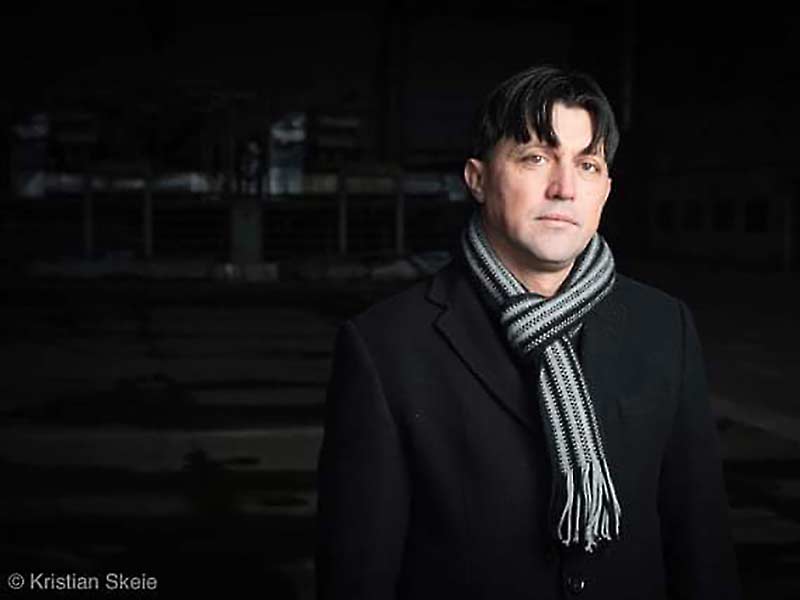New Srebrenica Survivor Testimonies Recall 1995 Genocide in Bosnia-Herzegovina

Earlier this year, thanks to a new collaboration with the Srebrenica Memorial Center, USC Shoah Foundation took possession of a pilot collection of 20 testimonies of survivors and witnesses of the 1995 genocide in Srebrenica, Bosnia-Herzegovina.
The testimonies document the genocide of more than 8,000 Bosnian Muslim (Bosniak) men and boys and the deportation of over 25,000 women and children that occurred in parts of eastern Bosnia-Herzegovina during the 1992-1995 war.
Hasan Hasanović survived the Srebrenica genocide and today is Head of Oral History at the Srebrenica Memorial Center.
In the first of a series of interview extracts, Hasan talks about the testimonies now being integrated into the Visual History Archive.
Has it been difficult to get survivors and witnesses to the Srebrenica genocide to talk about their experiences?
Over the past five years more and more people have started to come forward to tell their stories, both here and abroad. It’s been 26 years since the genocide, and I think people now feel that the time is right. They are ready.
Before giving testimony, people are often concerned about what the process might do to them. They ask if it will make them reexperience the trauma or if it will make their lives easier. I tell them that most people who share their stories say afterwards that they feel as though a weight has been lifted from their shoulders. That they feel freer.
That said, there are still a great many survivors who are not ready talk about what happened to them. Because of the trauma, because they are sick, or because they just want to forget. Believe it or not, some people feel that if they tell their story they will die. That in re-telling their experience, they’ll suffer a heart attack or stroke. Or just break apart and not be able to move on with their lives.
In some instances, people feel that telling their story is not going to change anything, that it won’t make any difference in the world. There are always pessimists, those who find a million reasons to not speak about their experience. And that’s fine. If people are not ready to talk, they are not ready to talk. I just hope the time will come for them.
What motivates survivors and witnesses to genocide to tell their stories?
After the genocide, some survivors thought that if they just got married, or found a job, or moved abroad, that their new lives would help erase their traumatic memories. And at first that might have worked, but eventually, after a few years, the haunting memories of what happened to them would resurface.
The people who share their testimonies with us often say they are doing it for their children, and for others who can learn from their stories. Most interviewees say it’s important that the world should know what happened to them, especially at a time when there are people who deny that the genocide ever took place. They understand it’s imperative that those who deny or minimize the genocide do not prevail. That oral history is the strongest tool with which to fight denial and revisionism.
How do people feel after they’ve shared their stories?
I know that for me, telling my story was very therapeutic. I am not an expert in the [mental health field] but I can say that, in most cases, people say that talking about what happened to them was a positive experience.
The process of giving testimony can be difficult. When survivors start to talk, they often break down and cry. We always try and make sure they have what they need and do our best to make them feel safe. And that’s why it’s important that whenever we ask people about their experiences, we have a therapist present before and after the interview.
Of course, the process of talking about traumatic experiences isn’t for everyone. Some people say it didn’t work for them.
But I’d estimate that 95 percent of the people we have interviewed say it was a really great thing. Some even say that they’d be happy to do it again, to speak with the media or with others.
Many of the Srebrenica testimonies begin with people talking about life before the war. Why is that important?
[Bosniaks] were once in the majority in eastern Bosnia-Herzegovina, but now—because of the war and the genocide—they are a small minority.
The pre-war community that people describe in their testimonies has almost completely disappeared, and that’s why it’s important that people talk about it. We want to make sure that that period of our history is not lost.
In many of the interviews people talk about local customs in the communities where they were born and once lived. They talk about how their grandparents and ancestors lived, about what life was like when they were children. They describe their small villages, small towns, and suburbs.
The sense you get from the testimonies is that those were happy times. People talk about living in a country that was pretty stable economically and in which they felt safe.
And so, in talking about their pre-war lives and communities, people are able to remember happy times, and that in itself is a kind of therapy.
Learn more about the collection.
Listen to an excerpt from Smajil Klempić's testimony from the Srebrenica Memorial Center's collection.